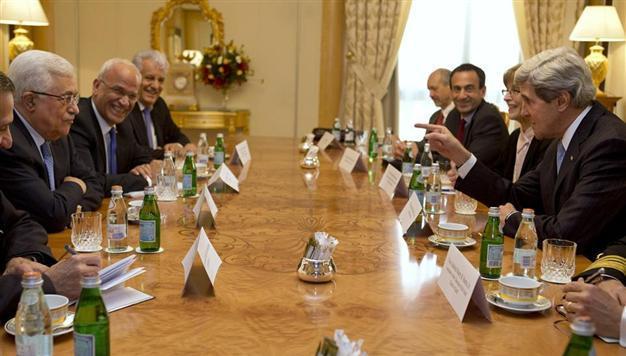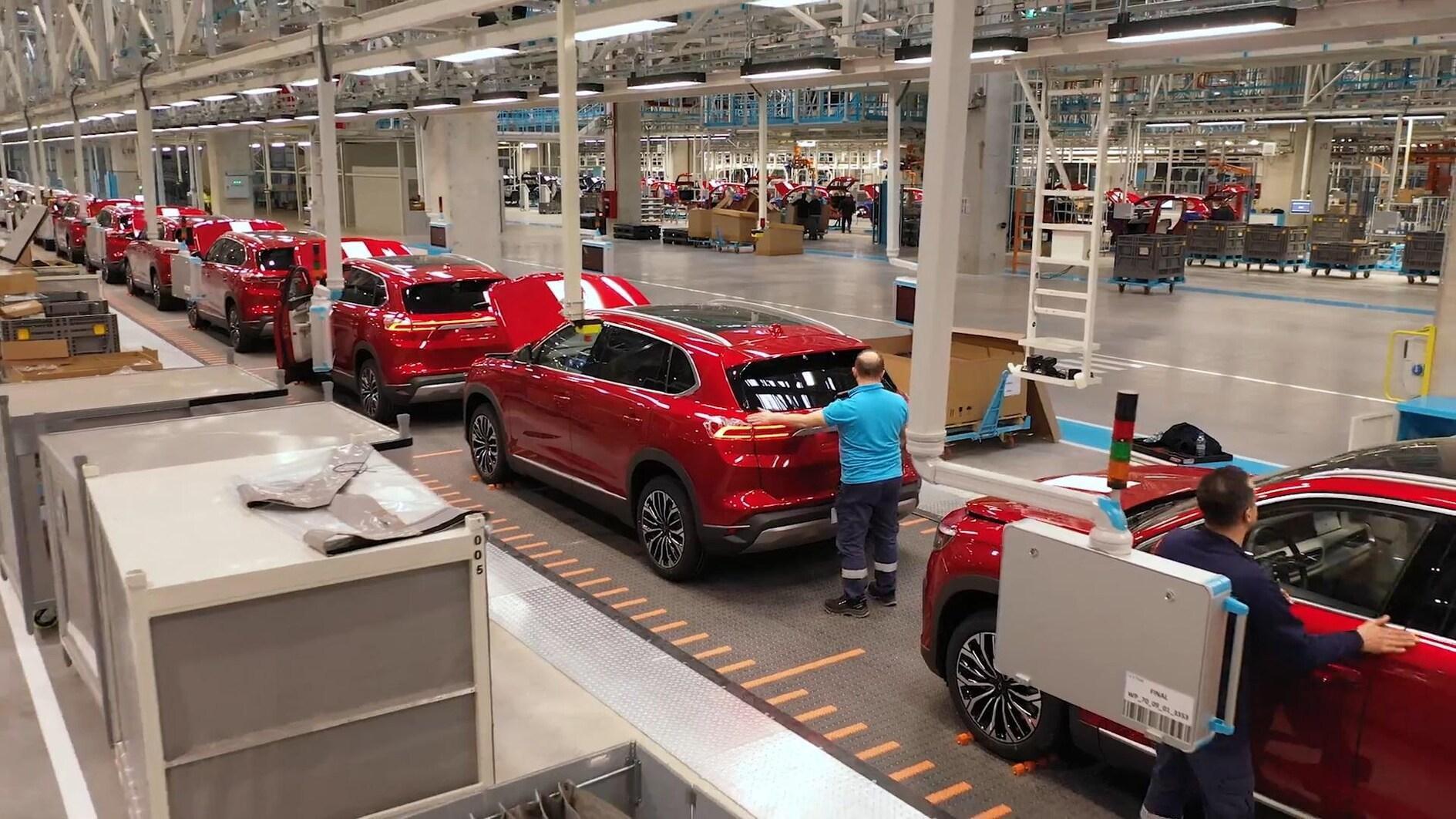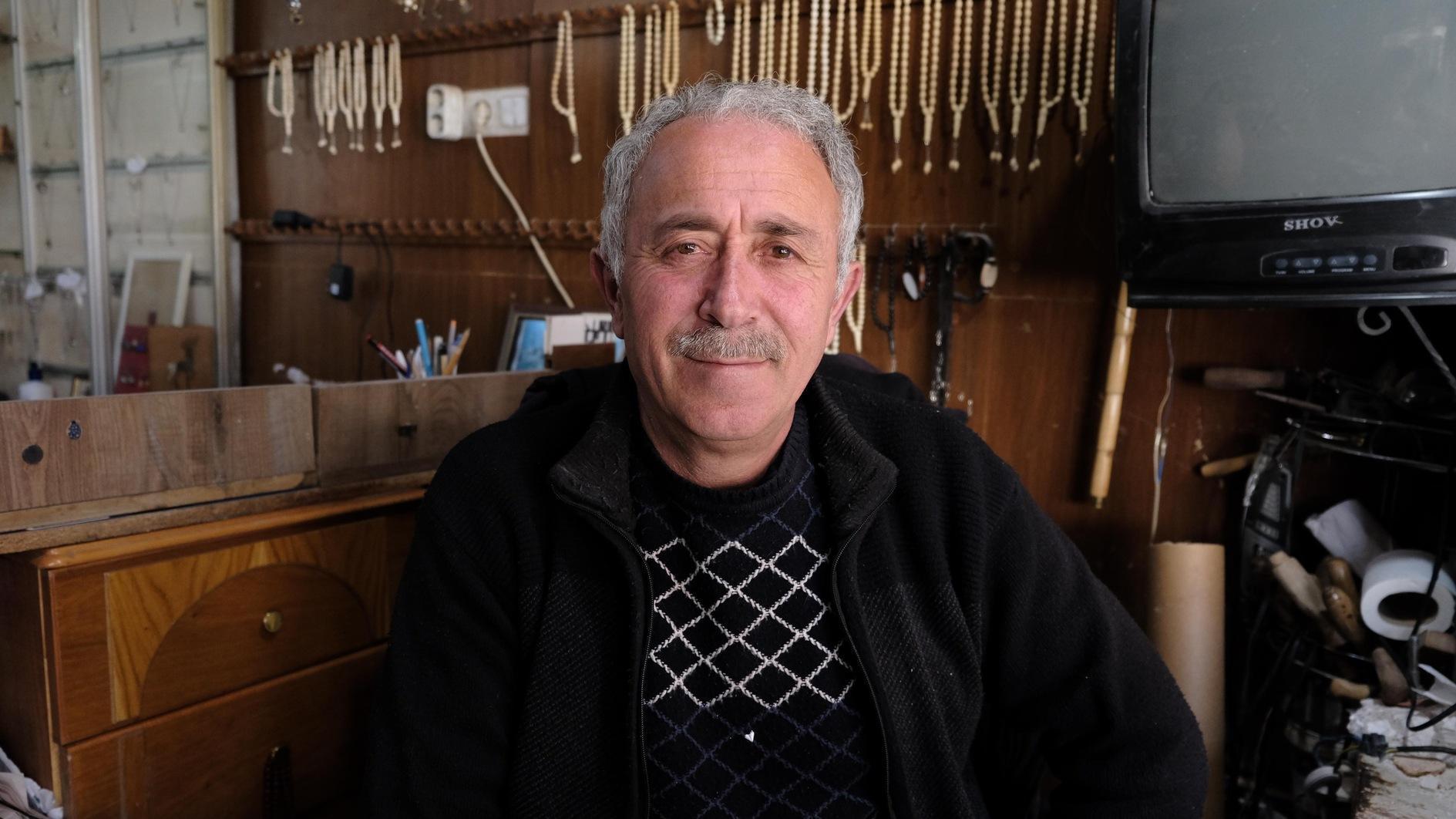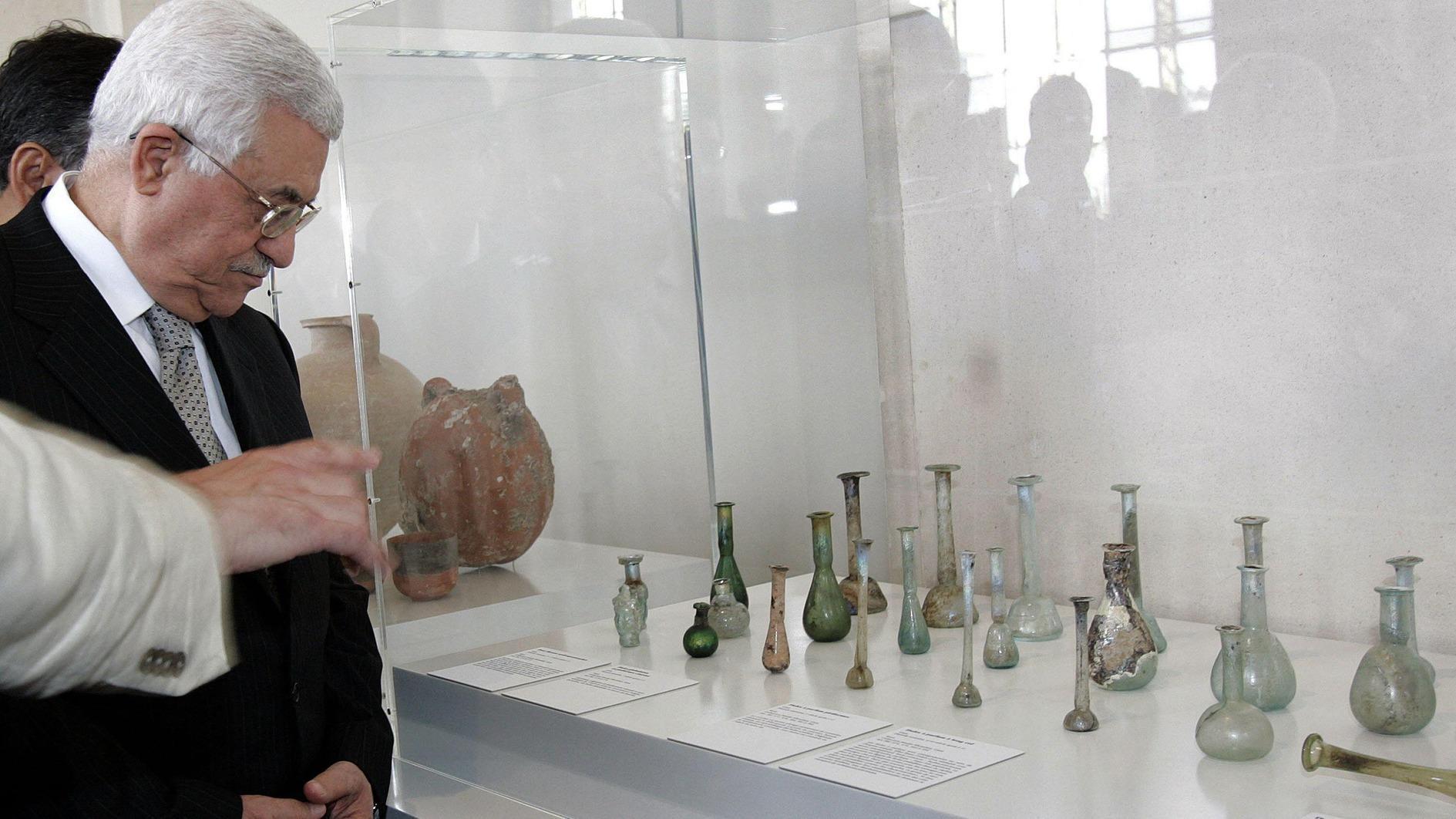US Secretary Kerry, Palestinian President Abbas hold surprise talks in Saudi
RIYADH - Agence France-Presse

U.S. Secretary of State John Kerry, right, has a last-minute meeting with Palestinian President Mahmoud Abbas, seated across the table from Kerry, at the Ritz-Carlton Hotel in Riyadh, Saudi Arabia on Monday, March 4, 2013. The Palestinian leader arrived unexpectedly in Riyadh on Sunday. AP Photo/Jacquelyn Martin, Pool
US Secretary of State John Kerry has met with Palestinian President Mahmud Abbas in Riyadh on Monday, a state department official told reporters.Kerry, on his first trip to the region since taking over as the top US diplomat, will have lunch with the Palestinian leader, who arrived unexpectedly in Riyadh on Sunday.
Kerry's tour does not include Israel or the Palestinian territories but he will reportedly accompany US President Barack Obama when he meets Israeli and Palestinian leaders in Jerusalem and Ramallah during a visit on March 20-22, Abbas "will present the Palestinian point of view to the new US administration ahead of Obama's visit," Palestinian envoy in Riyadh Jamal al-Shawbaki told the official Voice of Palestine radio.
Abbas, in his first meeting with Kerry, will also "highlight Israeli violations in Jerusalem, settlements, and the issue of Palestinian prisoners on hunger strike," said Shawbaki.
Palestinian-Israeli peace talks have been deadlocked for more than two years.
Abbas wants to renew peace talks in tandem with a freeze on Jewish settlement construction in the occupied West Bank and in east Jerusalem.
Kerry says US to 'empower' Syria rebels
Washington will work to "empower" the Syrian opposition short of supplying arms, US Secretary of State John Kerry said on Monday, as his Saudi counterpart stressed the right of Syrians to self-defence.
The United States will continue to work with its "friends to empower the Syrian opposition," Kerry told reporters in Riyadh during a joint press conference with Saudi Foreign Minister Prince Saud al-Faisal.
Asked about reports of arms being sent to the rebels from countries such as Qatar and Saudi Arabia, Kerry replied: "The moderate opposition has the ability to make sure that the weapons are getting to them and not to the wrong hands." However, he added, "there is no guarantee that one weapon or another might not fall in the wrong hands." The US has so far refused to arm rebels locked in a two-year war against President Bashar al-Assad's loyalists.
Prince Saud meanwhile insisted that the "Syrian people have the legitimate right to defend themselves against the regime's killing machine." Several oil-rich monarchies of the GCC, notably Saudi Arabia and Qatar, have supported the rebellion inside Syria against President Bashar al-Assad's regime, a staunch ally of their regional arch-foe Iran.
Both countries have openly called for arming the rebels.
In October, the New York Times said that discouraged by lack of US support, Saudi Arabia and Qatar have stopped short of arming Syrian rebels with the heavier weapons that could turn the tide of the war.
The only exception was an arms shipment reported last week by the New York Times, which said weapons bought by Saudi Arabia in Croatia were delivered to Syrian rebels through Jordan in December.
Kerry, who flew in to the Saudi capital late on Sunday after a two-day trip to Cairo, kicked off with an early morning meeting with several Gulf foreign ministers, an AFP correspondent said.
A US State Department official told reporters that Kerry would also hold talks in Riyadh with Palestinian president Mahmud Abbas, with a lunch meeting planned.
After winding up the Saudi leg of his tour later Monday, Kerry will head to Abu Dhabi and later to Qatar.
Kerry: Window on Iran not open ’indefinitely’
RIYADH, Saudi Arabia - The Associated Press
U.S. Secretary of State John Kerry, in Saudi Arabia for talks with Saudi and Gulf Arab officials, said Monday the window of opportunity for a diplomatic solution to the Iranian nuclear problem "cannot by definition remain open indefinitely."But Kerry, who was meeting in Riyadh with the foreign ministers of Kuwait, Bahrain and Oman as well as the Saudi crown prince and foreign minister, added that "there is time to resolve this issue providing the Iranians are prepared to engage seriously" on proposals to defuse it.
"But talks will not go on for the sake of talks and talks cannot become an instrument for delay that will make the situation more dangerous," he said. Kerry said he and Saudi Foreign Minister Prince Saud al-Faisal "discussed our shared determination to prevent Iran from acquiring a nuclear weapon."
Saud said that Saudi Arabia "supports the efforts to resolve the crisis diplomatically in order to alleviate all doubts surrounding the program."
















